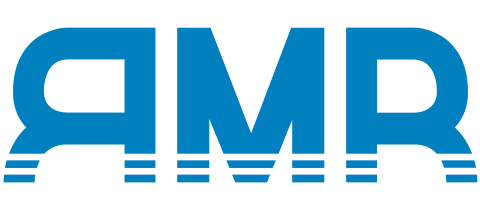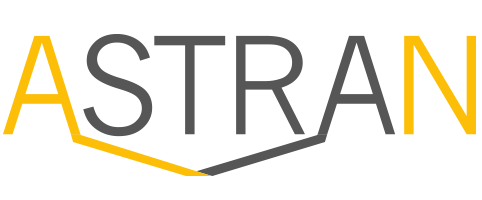|
Dear reader,
Climate change has far-reaching effects on rail infrastructure, as extreme weather events such as heavy rain, storms and heat can jeopardise the stability and safety of railway systems. The increase in natural disasters and extreme weather events repeatedly leads to damage to tracks, points and signalling systems, which affects the reliability of rail transport.
In view of these challenges, it is crucial that rail transport, as one of the most climate-neutral means of transport, makes its contribution to combating climate change. By reducing greenhouse gas emissions and using environmentally friendly technologies, the rail industry can help minimise its environmental footprint and improve air quality.
By focussing on sustainable practices and environmentally friendly solutions, the rail industry can not only reduce its carbon footprint, but also strengthen its role as a pioneer in climate-friendly mobility.
Enjoy reading and see you next month!
|
|
|
|
| |
The "RERA-WIND" project builds on the activities of the UIC "SAFIRST" project and aims to update technical reports and guidance from 2022. One focus is on the precise design and operating conditions of "semi-trailers and pocket wagons", which are crucial for the development of rail freight transport. Various categories of goods trains are also taken into account.
By updating the Danish Infrastructure Manager's safety risk analysis for the Great Belt Bridge, the aim is to improve the safety and efficiency of rail operations and minimise potential risks from climate change.
The project objectives include a comprehensive review of the technical reports on vehicle assessments and an extension of the review to all goods train categories. The successful completion of the project is crucial to improve the safety and efficiency of rail transport and prevent future incidents such as the Great Belt Bridge cases. | |
|
|
| |
The project aims to expand and disseminate the knowledge gained from workshops on Zero Waste Railways, the completed REUSE project of 2021 and the ongoing work of the Circular Economy Sector. The Circular Economy Sector, launched in May 2021 as part of the Sustainability Platform, aims to share knowledge and best practices to support UIC members in their transition to a circular economy.
The new project will support members to formulate their strategies and action plans, foster long-term partnerships with stakeholders along the entire supply chain and highlight efforts in the rail sector to reduce material consumption and greenhouse gas emissions.
In addition, the project will help the rail community to fulfil its commitments under the EU Green Deal and the UN Sustainable Development Goals. By integrating circular economy principles into railway operations, money and natural resources can be saved, CO2 emissions reduced, connections with new partners established and cross-industry collaboration encouraged.
The project aims to demonstrate the potential of the circular economy for the rail sector and create an environment where knowledge of best practices and strategies can be shared within the sector. Partnerships with supply chains and other sectors will be encouraged to realise savings in natural resources. The project scope includes relevant topics for freight and passenger railway operators and infrastructure managers.
Interactive workshops and technical webinars will be organised to share knowledge and embed the circular economy in the rail sector. The project is crucial to accelerate the adoption of circular economy principles in the rail sector and to orientate the industry towards sustainable development. | |
|
|
Research Results Published | |
|
|
| |
"Description: FINE-2 energy workstream aims at a horizontal coordination of these activities and thus addresses the digital and sustainable transformation of European rail transport. By defining and evaluating a standardised methodology for the estimation and simulation-based measurement of energy consumption, European standards for energy assessment can be proposed and the efficiency improvements achieved through S2R innovations will be made visible. This deliverable presents a methodology for energy labelling of railway vehicles based on the results of a stakeholder survey. It starts by analysing the opinions of the rail stakeholders on three different energy labels. It then summarises the progress made by other modes of transport in developing comparable systems, before discussing the influence of constantly growing comfort levels in rail vehicles as a challenge for energy efficiency. In addition, various strategies for benchmarking of rolling stock energy consumption are analysed based on data collected, whereby the classification scheme and the graphical scale bar are examined in depth as appropriate comparison methods. Based on this, the rail vehicles energy labels are further developed, considering the standard for railway energy consumption quantification EN 50591, and measures for its clarification and simplification are proposed.
Target audience: Rail Infrastructure Stakeholders
How it brings us closer to achieving better rail for Europe: Although the railway is considered an energy-efficient means of transport, there has been a lack of efforts to demonstrate this efficiency with the help of energy labels. With the help of the developed methodologies, train vehicles can be compared with each other, which supports the development of even more energy-efficient trains. The evaluated survey also demonstrates a strong interest in energy labels for comparing among means of transport, which could further increase the use of rail transport. Both developments contribute in the long term to transparency, social awareness, the elimination of energy inefficient vehicles from the market and ultimately to the achievement of the EU’s climate and energy goals. Apart from this, the deliverable examines how the ever-increasing demands for passenger comfort and the resulting changes in demand affect the energy efficiency of vehicles and thus contributes to one of the still unresolved controversies surrounding energy efficiency."
| |
|
|
| |
|
"Description: Although the Shift2Rail Innovation Programmes differ in their focus, they all aim at increasing the energy efficiency of the railway sector, which makes horizontal coordination indispensable. In this context, FINE-2 aims to develop and implement a methodology for evaluating the energy efficiency improvements achieved by the realised innovations. To be able to assess how the Technology Demonstrators (TDs) developed during the S2R projects contribute to this, reference values for the various speed profiles are required. This Energy Baseline has already been developed in FINE1 and was updated in this deliverable in the face of new technological developments and additionally required simulation input data. The Energy Baseline includes all the reference parameters that are necessary for calculating the energy consumption of trains for the different traffic segments and thus serves as the basis for calculating the energy savings achieved by the S2R innovations.
Target audience: Rail Infrastructure Stakeholders
How it brings us closer to achieving better rail for Europe: The deliverable updates the baseline to the level required and thus provides the foundation for many other projects whose coherence is ensured, and which will contribute to the future viability of the railway. At the same time, the deliverable increases cross-research awareness of the relevance of energy consumption. A standardised methodology for the estimation and quantified measurement of energy consumption will further reduce the environmental impact of railways, which will reduce their costs of vehicle operations and their overall life cycle. This, in turn, will increase their attractiveness and thus promote the modal shift in passenger and goods transport. It therefore offers great potential for the European railway industry as well as for the environment and society."
| |
|
|
|
| |
The Federal Railway Authority (EBA) and the German Centre for Rail Transport Research (DZSF) invite you to the Safety Culture Day on 17 October 2024. The focus is on strengthening a culture of trust and learning in the railway sector in accordance with EU directives. The event will take place from 9:00 a.m. to 4:30 p.m. hybrid at the EBA headquarters in Bonn and online. Representatives from railway companies and authorities will present measures to promote safety culture. Participation is free of charge, places on site are limited.
| |
|
|
| |
On behalf of the DZSF, the Institute of Rail Vehicles and Transport Systems (IFS) and the Institute of Plant Physiology (IPP) at RWTH Aachen University are working with crop.zone GmbH, HydroMill GmbH and LBBZ GmbH to research alternatives to chemical herbicides such as glyphosate for vegetation management on railway tracks. The results were presented in Aachen on 13 June and a test vehicle was presented. The aim is to develop herbicide-free methods such as mechanical weeding, high-pressure water jetting and electroweeding for sustainable and safe vegetation control. |
|
|
|
|
Rolling Stock Networking
Derby, UK
|
|
|
TransCityRail South
London, UK |
|
|
UK Light Rail Conference
Leeds, UK |
|
|
Featured Research Projects | |
|
|
We want to connect researchers and interested parties from industry and business and promote the exchange of research results.
If you are currently working on an exciting research project and would like to present it to a wider audience, please send us an e-mail. |
| Reach out now |
|
|
Inside RailMarketResearch |
|
|
|
Receive the latest news on the following topics:
| Trends, news and expert contributions, | upcoming events,
| studies, dossiers and company reports |
| Subscribe now! |
|
|
If you have any questions, please do not hesitate to contact us at +49 431 90881145 or by e-mail at store@railmarketresearch.com.
Best regards Your RMR-Team |
|
|




